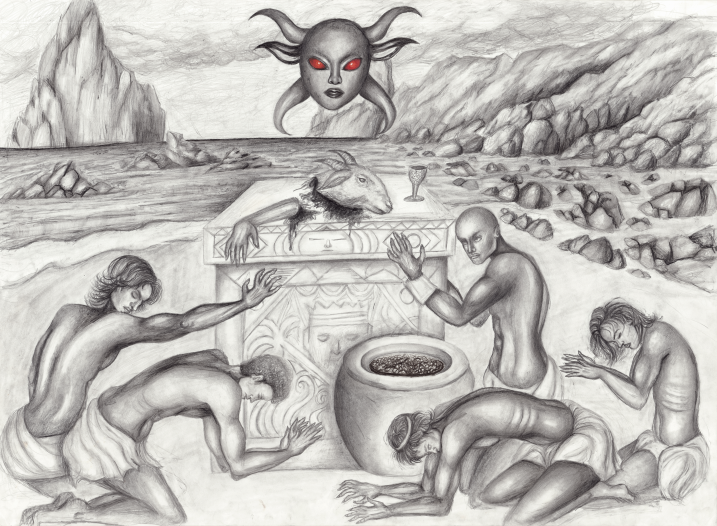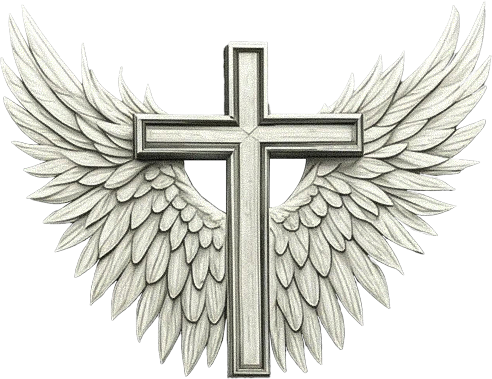
When I first began writing The Seed of Adam and the Egg of Lillith, I didn’t set out to create a story that would point a finger or preach. Honestly, it started from my own questions about God, about why people hurt each other, about why we make choices that pull us away from goodness even when we know better. The more I wrestled with these questions, the more this story took shape, almost as if it was waiting for me to give it life.
A Story About Choice
At its heart, this book is about choice. It’s about what happens when humans, gifted with free will, stand at the crossroads of temptation and truth. Adam and Lillith, though drawn from ancient myth and scripture, aren’t just far-off characters in an old tale. They’re reflections of us. They’re the echoes of our struggles, our doubts, our desires. I often think about how easy it is to slip into blaming outside forces for our failings. “The devil made me do it,” we say, or “the world is just broken.” There’s truth in that, of course. Evil is very real, and we live in a flawed world. But The Seed of Adam and the Egg of Lillith nudges us to look deeper, to explore the uncomfortable idea that we each hold seeds of both light and darkness within us.
Seeing Ourselves in Adam and Lillith
When Adam makes his choices in the book, he’s not entirely ignorant of what he’s doing. There’s a flicker of awareness, a silent tug in his heart that maybe this path isn’t right. Lillith too is far from a cardboard villain. She’s complex, drawn by a hunger for power, yes, but also by deep wounds and unmet longings. I wanted to show that the choices that lead us astray often start in our very human places of hurt and confusion. Writing this story forced me to confront my own choices. I thought back to times I let pride win over compassion, or when I chose comfort over courage, or even when I simply ignored a quiet prompting from God because it was inconvenient. None of us are immune. We all wrestle with what to do with our freedom and how to use it in ways that honor truth and goodness, rather than our own small appetites.
The Ripples of Our Decisions
What fascinates me is how every choice, big or small, sends out ripples. Adam’s decision doesn’t just affect him. It shapes the future of all who come after. The same is true in our own lives, though on a scale we might not see right away. A single choice to forgive, to speak truth, or to walk away from temptation can change everything. Likewise, one choice to feed bitterness or chase something we know is wrong can plant seeds that grow into something we never intended. Through this book, I hope readers will feel invited, not pressured or guilted, into taking a closer look at their own hearts. Where are we leaning toward selfishness over love? Where are we letting fear steer us away from purpose? And where might God be gently urging us to step into a story that’s bigger and better than the one we’re trying to write for ourselves?
What Are We Nurturing?
I think about the Egg of Lillith in the story. It’s mysterious, almost otherworldly, a symbol of what can be birthed from our choices. Are we nurturing things that lead to life, or are we hatching something dark without realizing it? Of course, life isn’t always so black and white. We stumble, we make mistakes, we learn. That’s why grace matters so much. One of the strongest undercurrents in The Seed of Adam and the Egg of Lillith is redemption. Even when we’ve sown bad seeds, there’s a chance for restoration. There’s a pathway back. I believe God delights in meeting us right where we are, offering us the choice to turn, to begin again, to write a new chapter.
An Invitation to Reflect
As I’ve shared this book with readers, I’ve been moved by the stories they’ve shared in return. Some have told me how it opened their eyes to patterns in their own lives they hadn’t recognized. Others said it gave them hope, that no matter how tangled their past, a better harvest is still possible. That means more to me than I can say, because ultimately, that’s why I wrote this story. Not just to entertain, but to open up a sacred space for reflection, for wrestling, for change. So, if you find yourself wondering what seeds you’re planting today, or what eggs might be quietly waiting to hatch from your choices tomorrow, know you’re not alone. I’m on that same journey, asking those same hard questions. Together, we can look honestly at our stories, trust God with our broken places, and choose day by day to sow what is good, true, and lasting.
Read the Book and Begin Your Reflection
If this speaks to you, I invite you to read The Seed of Adam and the Egg of Lillith and let its pages spark your own reflections. Who knows? It might just lead you to the next brave choice that changes everything.

